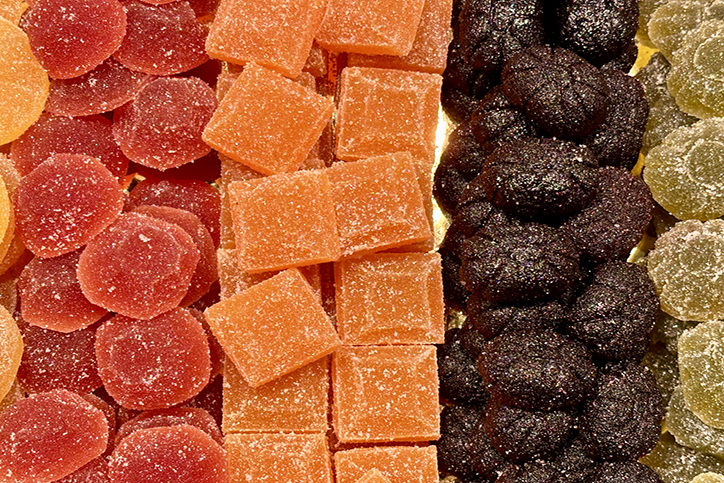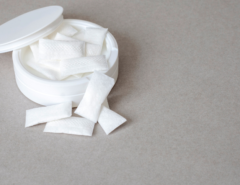If you take a stroll down the vitamin aisle at your local store, chances are you’ll be able to find the vitamin you’re looking for in gummy form! These sugary gummies are a sweet alternative to swallowing a traditional pill form of a medicine. But you can find more than just vitamins in gummy form on the market these days. Today we are going to talk about different gummies that we commonly get calls about at the Maryland Poison Center (MPC). We will also look at safe use and safe storage practices to keep ourselves and our families safe.
Vitamin Gummies
Whether it’s a daily multivitamin or a vitamin supplement you’re looking for, most likely you’ll be able to find it in gummy form.
According to the Cleveland Clinic, gummy vitamins do not have the same amount of vitamins as traditional pill or capsule vitamins do. When choosing a vitamin, avoiding the gummy version will give you the correct amount of vitamin you are trying to take.
It is important to read the label on the gummy package to determine how many servings to take and how often. Be sure to follow those directions! Also remember to close the container properly after use and store it up, away, and out of sight.
Melatonin Gummies
Children swallowing multiple doses of melatonin gummies is a common call we get. Often these products are left out where children can get to them, so store these products up, away, and out of sight. Do not refer to melatonin, or any other medicine for that matter, as a candy! Melatonin should not be referred to as “bedtime candy.” This leads children to believe that it is a “safe” product they can have whenever they want and however much they want.
The Centers for Disease Control and Prevention (CDC) posts a Morbidity and Mortality Weekly Report (MMWR). A previous MMWR noted a 530% increase in exposures to melatonin products such as gummies from 2012 to 2021. A lot of these were unsupervised exposures in infants and young children. The MMWR also spoke to this increase in exposure rate in relation to the increased use of these products.
Most melatonin exposures in young children result in minimal or no effect. We recommend calling the MPC first if a melatonin exposure happens and we will tell you if a visit to a health care facility is necessary.
Cannabis Gummies
Cannabis, also known as marijuana and delta-9-tetrahydrocannabinol (THC), can come in a gummy form. The MPC has been studying exposures involving cannabis, especially exposures happening in children.
On July 1, 2023, recreational (also called adult-use) cannabis became legal in the state of Maryland. With more cannabis products now available in homes across the state, we have seen an increase in pediatric exposures to cannabis. Cannabis products should always be stored up, away, and out of sight! For more information on safe storage, please review our Safe Storage Information Sheet created in collaboration with the Maryland Cannabis Administration.
Cannabis affects children differently than adults, and exposures to cannabis products should be taken seriously. Some may cause serious side effects such as sedation. We recommend calling the MPC if a child swallows any amount of a cannabis gummy. For more information on cannabis edibles, please visit our previously published Cannabis Edibles blog.
Delta-8 THC and CBD Gummies
There are also gummy/edible products on the market that contain delta-8-THC or Cannabidiol (CBD). Delta-8 and CBD are similar to cannabis (delta-9) but cause different effects in the body. However, delta-8 and CBD are not regulated by the Food and Drug Administration (FDA) so you don’t know what you’re getting with these products. These products are also more accessible to people by being available in gas stations, smoke shops, etc. Because these products can also cause serious side effects in children, we recommend calling the MPC if a child takes any amount of these gummies.
As always, the MPC is available 24/7 at 1-800-222-1222. Calling is free and confidential. You will always speak to a trained pharmacist or nurse.





Leave a Reply